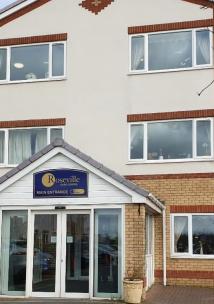Roseville Care Centre Follow Up Enter & View Report - March 2020

Summary
In 2018, Healthwatch Stockton-on-Tees conducted 28 Enter and View visits to care homes across the Borough. The purpose of this work was to determine what it’s like to live in a care home in Stockton-on-Tees.
Following this a number of recommendations were made to care home managers and providers to help improve the residents, family members and staff experience of the care and service provided.
One of the reasons for this visit, as discussed with managers of the service, was to highlight the improvements that they told us had been put in place since our previous Enter & View visit in 2018.
Healthwatch Stockton-on-Tees visited the home on the 12th March to conduct the follow up Enter and View and to speak to staff, residents and relatives, gathering feedback via surveys, one-to-one discussions and from observations made on the day.
During the follow up visit, Healthwatch Stockton-on-Tees spoke to a total of 10 residents, 10 members of staff and received feedback from 13 relatives/friends of residents living in Roseville Care Centre. Some of these responses were received on the day of the visit, others were returned by post.
Conclusion
Generally this was a very positive visit. Discussions with residents suggested high levels of satisfaction with the service provided and this was backed by the responses we received from relatives and friends of residents. They expressed satisfaction with management of the home, and despite the size of the building, the manager appears to be recognised by a majority of residents. Relatives told us they would have no problems approaching her if they could not get satisfaction from senior staff on specific units.
Most relatives felt that staff were suitably skilled to undertake their jobs and to meet the needs of residents, and that although staff have a difficult job to do, they usually have sufficient time to meet the needs of residents, although opportunities to just stop for a chat can be limited. Some relatives and staff spoke about ever increasing dependency levels, and the fact that several residents now require assistance from two staff members.
- Residents felt that there was a good range of activity and stimulation being provided for them, with those spoken to expressing pleasure at being able to play bingo – with assistance if needed – and chatting over a cup of coffee or tea. The four well-being co-ordinators, sometimes supported by students from a local college, work across a 7-day week and have a range of activities at their disposal including one-to-one activities for those residents who require more personalised stimulation. However, one gentleman told us he did not think there were enough activities tailored to meet the needs of male residents
- Feedback provided suggested opportunities for residents to get out of the home, supported by staff from the home, were fairly limited. Some attend a weekly ‘soup for the soul’ session at a local church and are occasionally taken across to local shops. However, the home does not have its own mini bus and opportunities to take residents further afield and more frequently are limited. Some staff and residents told us that such opportunities would be beneficial.
- The food served at the home was felt to be of good quality with sufficient choice and alternatives being available. However it was felt that pictorial menus (or show plates) could be of benefit, particularly in the units for those living with dementia. The dining rooms however were light, airy and well presented. We were told that crockery in contrasting colours was available to aid residents in the Lavender and Rose units.
- The home was generally well decorated, with no obvious unpleasant odours, except for one area in Lavender unit, where a badly stained carpet could do with being replaced. A range of dementia friendly features were observed here, which provided stimulation for residents and helped them to better find their way around. The dementia unit itself is split into two, Lavender for residents who are requiring a quieter/calmer environment and Rose for residents living with more advanced dementia or those who could, at times, prove to be more challenging.
- Staff were generally positive about the home, although one staff member was at odds with colleagues on a number of issues feeling several aspects of the service could be improved upon. However most staff spoke positively about the home’s manager and felt well supported in their role. They have been provided with a range of training opportunities as well as completing all mandatory training which is updated regularly. Staff felt that they were adequately trained and that they had opportunities to continue developing their skills. A number of staff told us they have recently received training with regard to oral hygiene whilst this is due to be cascaded down to others.
- Residents receive appropriate and timely access to a range of healthcare professionals as required. Routine visits are carried out by dentists and opticians. The home have found a benefit in transferring a majority of residents to a new company Vision Care. Residents now have their spectacles clearly marked to identify those used specifically for reading. Staff can see if residents are wearing the incorrect pair and this has helped reduce falls. However, one relative told us that they would have liked to be contacted before their relative was seen by the optician. Use of the NEWS (National Early Warning Scheme) system, means that routine tests are shared directly with the home manager and also with members of the community nursing team to help with the early identification of any issues.
To read the Care Quality Commission inspection report on Roseville Care Centre, please click HERE.
Downloads
You can download our full report below, including our recommendations.
